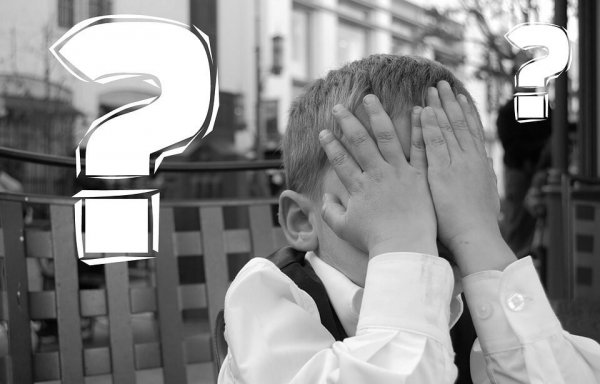Being Afraid to Make a Decision: How Does It Affect You?

People from all different cultures, professions, and educational and socioeconomic levels have trouble with it. We live in a society full of information and knowledge, giving us so many options to choose from for almost everything.
One of the most common reasons for this decision-making blockage is an emotion: fear. You might be afraid to make a decision, for example, if you’re not sure if you should stay in your relationship or break up, switch professions or jobs, have kids, etc.
When it comes to big things in life — or irreversible decisions, even worse — this fear can be very powerful. It might make you put off the decision. But then you’ll just feel a vague unease. We do it a lot though: if I don’t know what to do or what path to take, I put my decision off for later.
You might do it with the hope that you’ll learn some new information that will make the decision easier. Or maybe time will take an option out of the running, making the decision for you. As you can see, being afraid to make a decision can significantly affect your life.

Being afraid to make a decision: the wrong decision
This is probably the most common situation. The more important the decision, the more afraid you are of choosing wrong. It actually does have a very important adaptive function: being cautious and protecting ourselves and others. We see a high cliff and we make a choice.
Being afraid to choose wrong is a kind of fear that’s linked to your responsibility for the choice. It makes you think about the potential options before you make a choice. This fear is very common when it’s a change that’s hard or impossible to undo, one with big consequences.
Being afraid to make a decision: the consequences in your life
Feeling fear because of the possibility that you won’t choose the right path can paralyze you. It might make you indecisive for a long time and react more slowly. It could put you on an endless search for information about which decision is best.
One of the biggest things that happens is that you’ll always be looking for more information or a definitive conclusion. That is, you’ll erroneously believe that overthinking will bring you to a safe, certain conclusion.
Having an intense fear of choosing wrong can cause what psychology calls “pathological doubt.” Pathological doubt is characterized by an obsessive search for absolute certainty. This search is reinforced by a mental compulsion that’s expressed through a constant feeling of doubt.

Fear of not measuring up
Here, a person is clear on which choice to make, but doubts their ability to deal with the effects of the decision. For example, say a person has to decide whether or not to do a presentation at a conference. They might end up turning down the invitation just because of that fear. They’re afraid of not measuring up to the other panelists, people’s expectations, or their own expectations.
A fear of not measuring up can make you avoid positions of responsibility, focus on unimportant decisions, and leave the most important decisions to other people. Then, it usually results in low self-esteem.
Being afraid of not measuring up can also make you pass up opportunities. That’s because you feel you’re not prepared for what it will take. We’re talking about the kind of fear that keeps you in your comfort zone and thus keeps you from growing. So one effective way to overcome a fear of not measuring up is to work on your self-esteem.
Fear of not having or losing control
This fear is common in people who have a high need for control. If a person with a high need for control sees that not everything about the decision is under their control, they’ll stop the decision-making process. For example, a lot of people end up turning down a job that involves group projects, because of this fear.
Processing the need to control everything or dealing with a control freak can be a really stressful challenge. After all, it’s a very powerful need. An extreme case is Obsessive-compulsive Personality Disorder.
How can you identify if you’re afraid of losing control?
We can see it both during the decision-making process and when the consequences of the decision come up. These are usually the effects of this fear during the decision-making process:
- The person feels a need to review all available information before they’ll choose.
- They need an undetermined amount of time to think about the choice.
- They analyze the pros and cons of all the potential options over and over again.
We can also see a fear of losing control when the decision changes the person’s ability to be in control. That is, you’re in control of the choice, but the option you want to choose means giving up some control. Telling yourself to stop controlling the results of certain things in your everyday routine can be a good start to overcoming the fear.
Fear of social rejection
Feeling loved, respected, and accepted is one of the most basic human needs. Being afraid of social rejection is very common when all options are, one way or another, negative.
We’re talking about situations where choosing anything will inevitable neglecting some of your own needs, or the needs of others. Think about when you’re in mediator role in a conflict and make a decision for the people involved.

Problems that come from being afraid of social rejection
Having a fear of social rejection creates problems. One is making decisions based on getting approval and not on what you really need. You don’t choose what will make you happiest or what’s most beneficial. Instead, when you’re afraid of social rejection you’ll choose whatever others like or makes you look the best.
People who want to work on their fear of social rejection can use techniques from Third Wave Therapy, like Acceptance and Commitment Therapy. These techniques will teach you to accept certain aspects of your life and the thoughts you can’t change. This will help you make choices based on your values and needs.
Remember that making choices is something that you can’t reject or delegate. Choices are your steering wheel. They’re what will decide your future and you have to take responsibility for them. If one of the fears we described is paralyzing you, you can always get professional help.
This text is provided for informational purposes only and does not replace consultation with a professional. If in doubt, consult your specialist.








